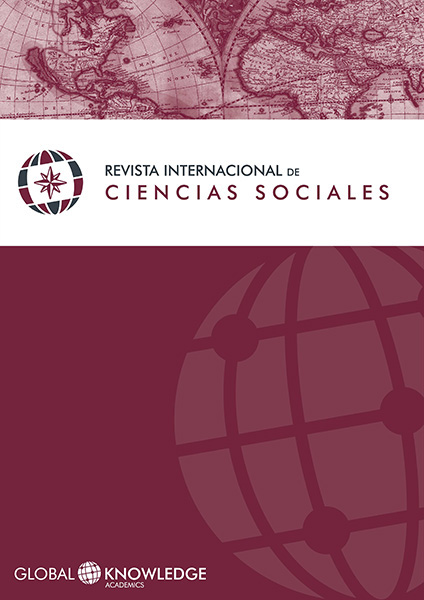Social Inequality Under Soviet Ideology: Analysis of the Discourse System in the Film "Moscú Does Not Believe in Tears"
DOI:
https://doi.org/10.37467/gka-revsocial.v1.1204Keywords:
Socialist Social Stratification, Social Mobility, Soviet Way of Life, Socialist MeritocracyAbstract
This article will analyze the discourse related to social inequality that appears in the Soviet film 'Moscow Does Not Believe in Tears'. Twenty years have passed since the fall of the USSR. Interviews, feature articles in the press, and documentaries remind us of the anniversary of that event. Newly published books appear seeking to explore communism's historic reach, explain the failure of Peristroika, or shed light upon lesser known aspects of Stalin. This article aims to analyze, though only in part, the discourse that existed within Soviet society about the phenomenon of inequality. Our eminently sociological approximation will be based upon a film very popular with the Russian people. Directed by Vladimir Menshov, it won the 1980 Academy Award for Best Foreign Language Film. It tells the story of three provincial girls in the late 1950s who emigrate to Moscow in search of a better life. Fernando Conde's 'Análisis sociológico del sistema de discursos' [Sociological Analysis of Discourse Systems], published by the Centro de Investigaciones Sociológicas (CIS) [Center for Sociological Research], will be our guide for the empirical work. We will be experimenting with this book, originally intended for discussion group and interview analysis, to see how useful it is when applied to film.
Downloads
Global Statistics ℹ️
|
423
Views
|
817
Downloads
|
|
1240
Total
|
|
References
Conde Gutiérrez del Álamo, F. (2009). Análisis sociológico del sistema de discursos. Cuaderno metodológico nº 43. Madrid: Centro de Investigaciones Sociológicas. DOI: https://doi.org/10.1590/S1135-57272010000100009
Entrena Durán, F. (2001). Modernidad y cambio social. Madrid: Trotta.
Giddens, A. (2008). La transformación de la intimidad. Madrid: Cátedra. Original publicado en 1991.
Ibáñez, J (1986). “Cómo se realiza una investigación mediante grupos de discusión”, en García Ferrando, F; Ibáñez, J; Alvira, F. El análisis de la realidad social. Alianza: Madrid. 2005.
Inkeles, A. (1961). “Myth and reality of social classes”, en Inkeles, A; Geiger, K. Soviet Society. A book of readings. Londres: Constable and company.
Mckee, R. (2009). El guión. Madrid: Alba Editorial.
Rozental, M; Yudin, P. (1955). Kratkij filosofskij slovar. Moscú: Gosudarstvennoe izdatelstvo politichekoij literatury.
Shkaratan, O.I. (1970). Problemy sotsialnoj struktury rabochego klassa SSSR. Moscú: Mysl´.
VV.AA. (1954). Politicheskaya Ek onomia. Moscú: Gosudarstvennoe izdatelstvo politichekoij literatury.
Voslensky, M. (1981). La nomenklatura. Los privilegiados en la URSS. Barcelona: Argos Vergara. Original publicado en 1980.
Zaslavskaya. T. (1988). “O strategii sotsialnogo upravlenia perestrojkoj”, en Afanasev, U. N. Perestrojka: glasnost´, demokratia, sotsializm. Moscú. Progress.
Downloads
Published
How to Cite
Issue
Section
License
Those authors who publish in this journal accept the following terms:
-
Authors retain copyright.
-
Authors transfer to the journal the right of first publication. The journal also owns the publishing rights.
-
All published contents are governed by an Attribution-NoDerivatives 4.0 International License.
Access the informative version and legal text of the license. By virtue of this, third parties are allowed to use what is published as long as they mention the authorship of the work and the first publication in this journal. If you transform the material, you may not distribute the modified work. -
Authors may make other independent and additional contractual arrangements for non-exclusive distribution of the version of the article published in this journal (e.g., inclusion in an institutional repository or publication in a book) as long as they clearly indicate that the work was first published in this journal.
- Authors are allowed and recommended to publish their work on the Internet (for example on institutional and personal websites), following the publication of, and referencing the journal, as this could lead to constructive exchanges and a more extensive and quick circulation of published works (see The Effect of Open Access).













